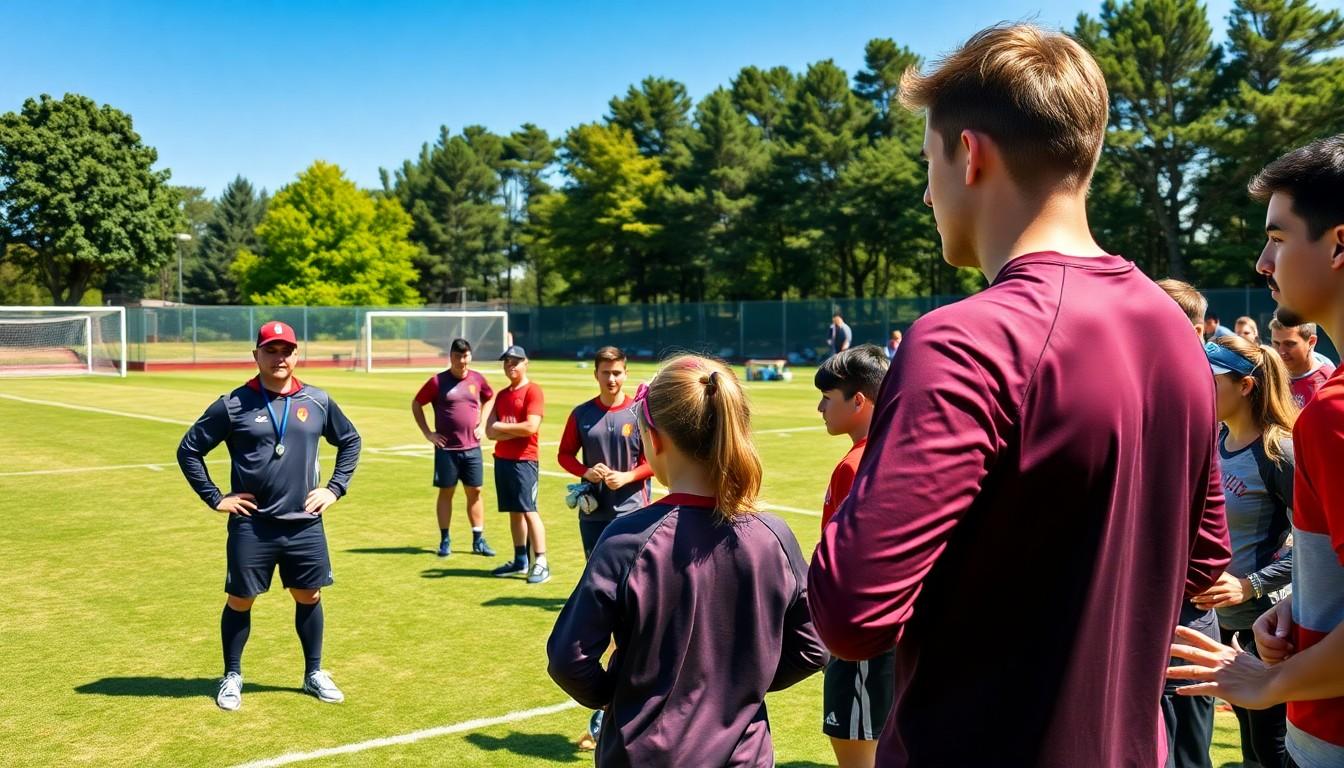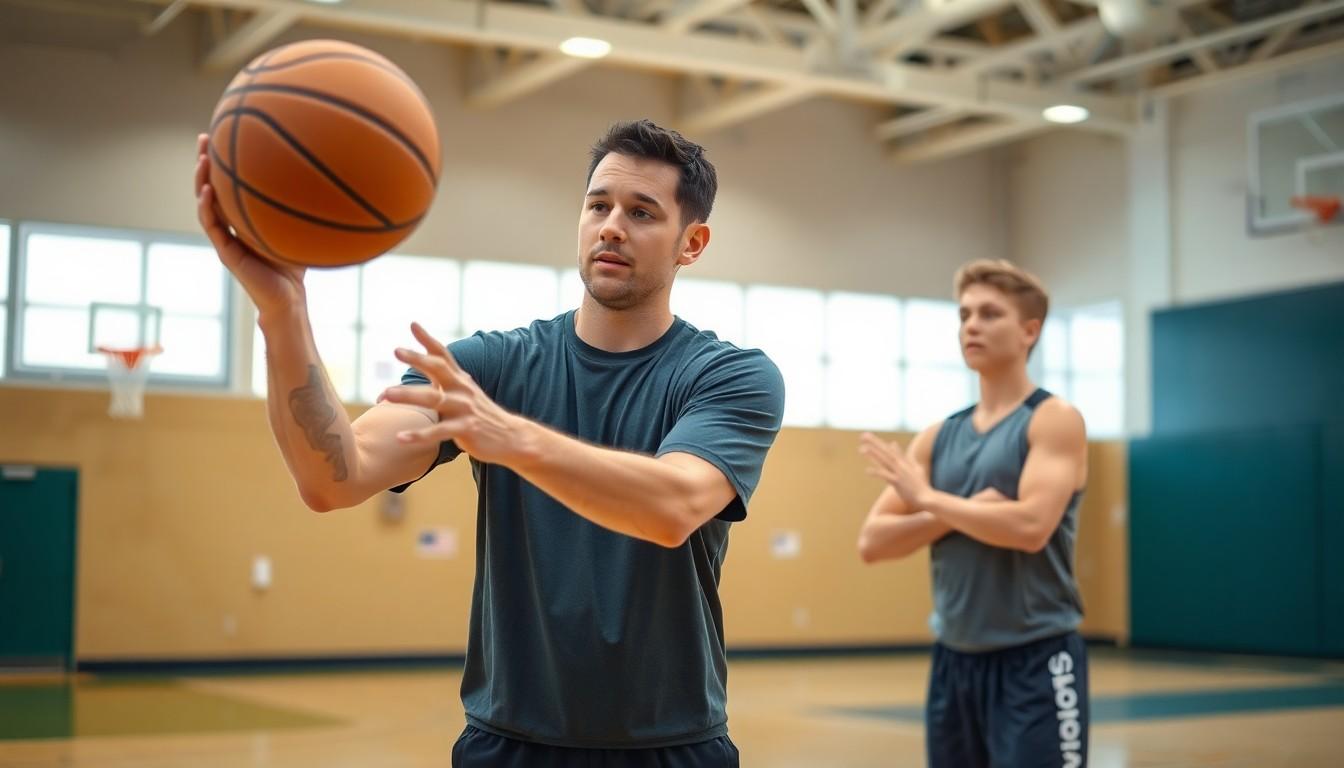Phone:
(701)814-6992
Physical address:
6296 Donnelly Plaza
Ratkeville, Bahamas.

In the world of sports, talent alone won’t cut it. That’s where player development jobs come into play, transforming raw potential into superstar prowess. Think of these roles as the fairy godmothers of the athletic realm, sprinkling a little magic on skills and mindset to help athletes reach their peak performance.
Player development jobs play a crucial role in the sports industry. Professionals in these positions work closely with athletes, focusing on enhancing their performance, both physically and mentally. Coaches, trainers, and sports psychologists comprise the core of this sector.
Athlete performance is not solely determined by natural talent. Extensive training and strategic guidance significantly influence success. Development specialists assess individual player needs, tailoring programs that address weaknesses and reinforce strengths. This personalized approach fosters growth in athletic skill and overall confidence.
Player development professionals often collaborate with other team members. Collaboration ensures cohesive strategies that align player goals with team objectives. They facilitate workshops and training sessions that promote teamwork and personal accountability, which are vital in high-pressure environments.
A successful player development job often requires specific qualifications. Many specialists hold degrees in sports management, physical education, or psychology. Certifications from reputable organizations enhance credibility, demonstrating expertise in design and implementation of development programs.
Opportunities for advancement exist within this field. Experienced professionals may transition to higher-level coaching roles or administrative positions in sports organizations. Networking plays a critical role, as connections can lead to new job opportunities or collaborations.
Numerous industries seek player development specialists. Colleges, professional teams, and youth sports organizations all require trained personnel to cultivate talent. As interest in player development continues to grow, the demand for qualified professionals remains strong in sports and wellness sectors.

Player development professionals hold crucial responsibilities that significantly impact athletes’ growth. These roles require a blend of technical knowledge, interpersonal skills, and strategic planning.
Coaching focuses on guiding athletes through their unique journeys. Mentoring provides a foundation for building confidence and resilience. Player development specialists create personalized training regimes that align with individual goals. Effective communication fosters a supportive environment where athletes can openly discuss challenges. Coaches often share experiences, promoting a culture of learning and adaptation. Regular feedback sessions help athletes understand their progress and areas for improvement. Personal connections are vital, as they encourage athletes to remain dedicated to their development.
Skill assessment involves evaluating an athlete’s current abilities to devise tailored training solutions. Observational techniques help identify strengths and weaknesses in performance. Development specialists utilize various tools, such as video analysis and performance metrics, to guide their assessments. They analyze data to set measurable goals for athletes, ensuring that progress is trackable. Training plans, aligned with these assessments, include targeted exercises aimed at improving specific areas. Regular adjustments to skill improvement strategies keep the training relevant and effective. Consistent monitoring ensures athletes remain on track towards achieving their potential.
Player development jobs require a blend of educational background and essential skills that support effective athlete enhancement. Professionals in this field should possess specific qualifications to ensure they meet the demands of their roles.
A bachelor’s degree in a relevant field stands as a fundamental requirement for player development professionals. Common disciplines include sports science, physical education, or psychology. Higher degrees like a master’s can enhance a candidate’s prospects, indicating advanced knowledge and expertise. Certifications related to coaching or athletic training also improve one’s qualifications. They demonstrate a commitment to ongoing professional development. Many employers prefer candidates with relevant educational credentials that align with their sport or athlete focus.
Successful player development specialists demonstrate a strong foundation of skills vital for enhancing athlete performance. Effective communication abilities allow professionals to convey feedback clearly and build rapport with players. Analytical skills play an important role in assessing performance metrics and devising tailored training programs. Problem-solving skills come into play when addressing individual athlete challenges or adapting training regimens. Interpersonal skills foster collaboration and trust within teams, promoting a positive environment for growth. Additionally, organizational skills are essential for managing training schedules and maintaining detailed records of athlete progress.
Player development jobs offer diverse career paths within the sports industry. Professionals in this field play a pivotal role in enhancing athletic performance and personal growth.
Entry-level roles typically include positions like assistant coach, sports performance intern, and youth development coordinator. These opportunities allow individuals to gain hands-on experience in training, mentoring, and assessing athletes. In many cases, aspiring candidates work under seasoned professionals, observing how they tailor training programs and provide feedback. They often assist in implementing training schedules and evaluating player progress. This foundational experience builds essential skills in communication and organization, positioning individuals for future advancement.
Advancement in player development careers can lead to higher-level roles such as head coach, director of player development, or sports psychologist. Gaining specialized certifications and advanced degrees notably enhances prospects for upward mobility. Many successful professionals transition from coaching roles into administrative positions that focus on program development. Notably, networking within the sports industry is crucial for discovering new opportunities. Players who excel in their roles often mentor entry-level staff, fostering a culture of growth and development.
Challenges in player development jobs often arise from the complex dynamics of team environments. Communication hurdles can impede effective interactions between coaches and athletes, making it difficult to convey expectations and provide constructive feedback. High expectations from management and fans amplify pressure on player development professionals, leading to stress and burnout.
Athletes face unique struggles during their development journeys. Each athlete possesses individual learning styles and motivational triggers, requiring tailored approaches. Adjusting training methods to accommodate diverse needs can stretch the resources of player development specialists. Time management becomes critical as they balance multiple athletes’ requirements against tight schedules and training regimens.
Building trust with athletes poses another challenge. Developing relationships takes time and consistency, elements that can be hard to maintain in fast-paced environments. A lack of rapport may hinder the effectiveness of training programs, limiting athletes’ willingness to engage fully in their development pathways.
Measuring progress in player development isn’t straightforward. Objective performance metrics provide valuable insights, but subjective evaluations are equally important. Specialists often navigate these dual aspects, finding the right balance between quantitative and qualitative assessments.
Collaboration among team members adds a layer of complexity. Aligning different coaching philosophies and strategies demands strong interpersonal skills and conflict resolution abilities. Navigating diverse opinions requires diplomacy and flexibility.
Additionally, industry improvements constantly evolve the skill set needed for player development professionals. Staying updated on the latest training methods and psychological approaches is crucial. Professionals face the ongoing challenge of continuous education to remain relevant and effective in their roles.
Player development jobs are vital in shaping the future of athletes. These roles not only enhance skills but also build the mental resilience necessary for success. With the growing demand for qualified professionals in this field, opportunities abound for those willing to invest in their education and network within the industry.
As the sports landscape evolves, player development specialists must adapt to new challenges and methodologies. Their commitment to fostering athlete growth creates a lasting impact on performance and teamwork. By prioritizing communication and collaboration, these professionals ensure that athletes reach their full potential both on and off the field.